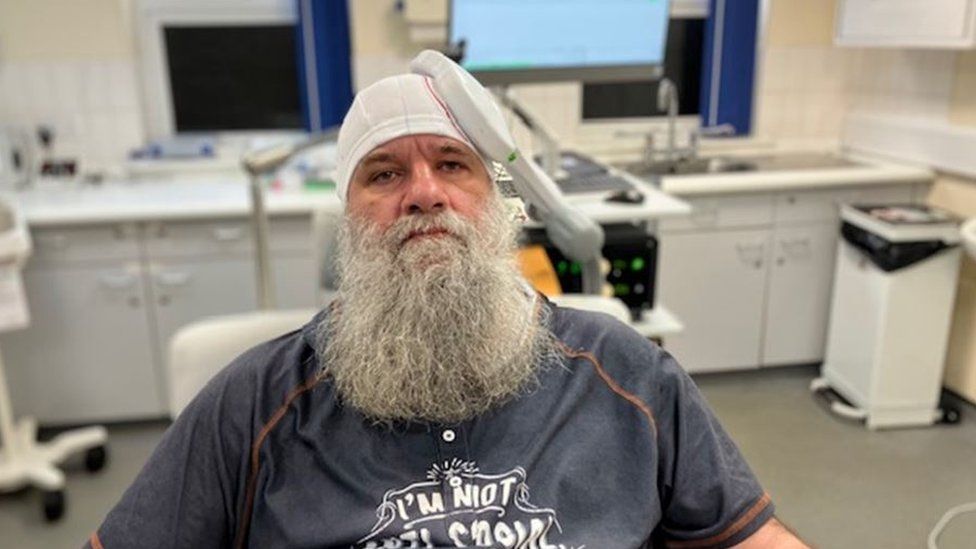ARTICLE AD BOX

Mark Rickman said the treatment has had a 'huge impact' on his life
By Matthew Hill & Jasmine Ketibuah-Foley
BBC West
A therapy using magnets to treat severe depression is available on the NHS in the West for the first time.
Wellsprings clinic in Taunton can now deliver the repetitive Transcranial Magnetic Stimulation treatment (rTMS) to NHS patients through a referral.
During a session, a strong magnetic field is used to stimulate or inhibit different parts of the brain.
The National Institute for Health and Care Excellence (NICE) said it had "no major safety concerns" for the therapy.
Mark Rickman, 60, from Dartmoor deals with bipolar and depression and said rTMS has had a positive impact on him.
He paid £4,000 to get the treatment delivered by a private clinic elsewhere in the west.
'Response is variable'
NICE cleared rTMS for use in 2015, for people who had not responded well to antidepressants, and had "no major concerns" about the therapy.
The main side effects were said to be headaches, and patients at risk of seizures are screened.
"The evidence on its efficacy in the short‑term is adequate, although the clinical response is variable," A NICE spokesperson said.
"Repetitive transcranial magnetic stimulation for depression may be used with normal arrangements for clinical governance and audit."
'Hugely impacted my life'
Mr Rickman previously tried Electroconvulsive Therapy (ECT), where electric shocks cause a brief surge of electrical activity in the brain, but said it was "debilitating" compared to rTMS.
"The major benefit of rTMS is it's a short treatment time here, a 15-30 minute session, I am able to drive myself here," he said.
"Whereas with ECT you have to have somebody with you for 24 hours and you can't drive for 12 weeks, so this is a huge difference in terms of the impact on my life."
Dr Maynard said: "Any new treatment we have for depression is really welcome"
Dr Nathan Maynard, lead consultant psychiatrist for the Taunton rTMS clinic, said up to a third of patients with depression are "clinically treatment resistant".
He said: "We typically see patients who are under the care of mental health services.
"The patient would be referred to our clinic and I'd assess them, before offering an intensive course of rTMS if appropriate."
Ms Gullick hopes patients from outside of Somerset will increasingly benefit from rTMS
Catriona Gullick, neuromodulation team leader at the clinic said patients travel from all over the south west of England for the treatment.
"We have had a couple of patients that have come from Devon, one from Frome, so even though there's a longer commute, they are quite content because they feel the treatment is beneficial," she said.
Follow BBC West on Facebook, Twitter and Instagram. Send your story ideas to: bristol@bbc.co.uk
Related Internet Links
The BBC is not responsible for the content of external sites.

 2 years ago
34
2 years ago
34








 English (US) ·
English (US) ·